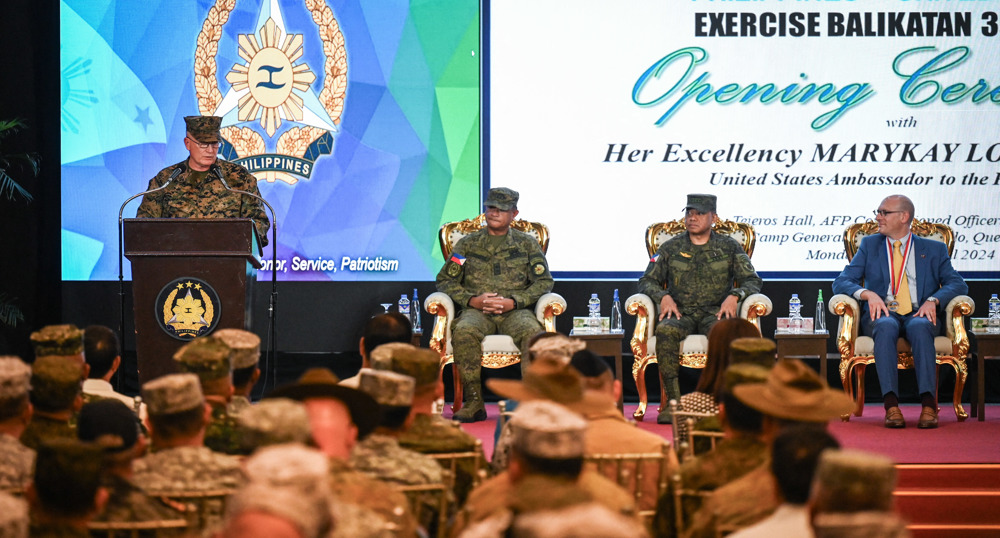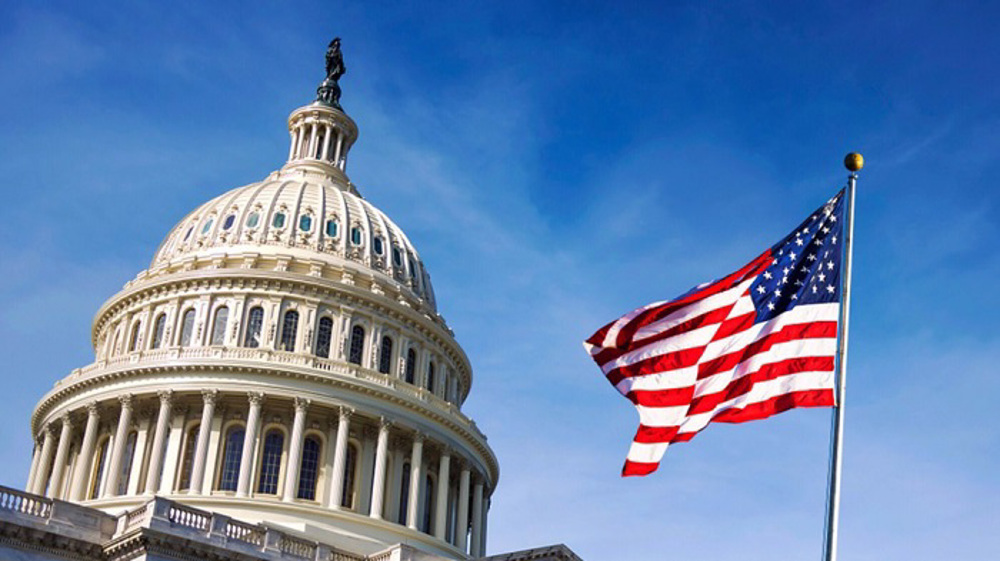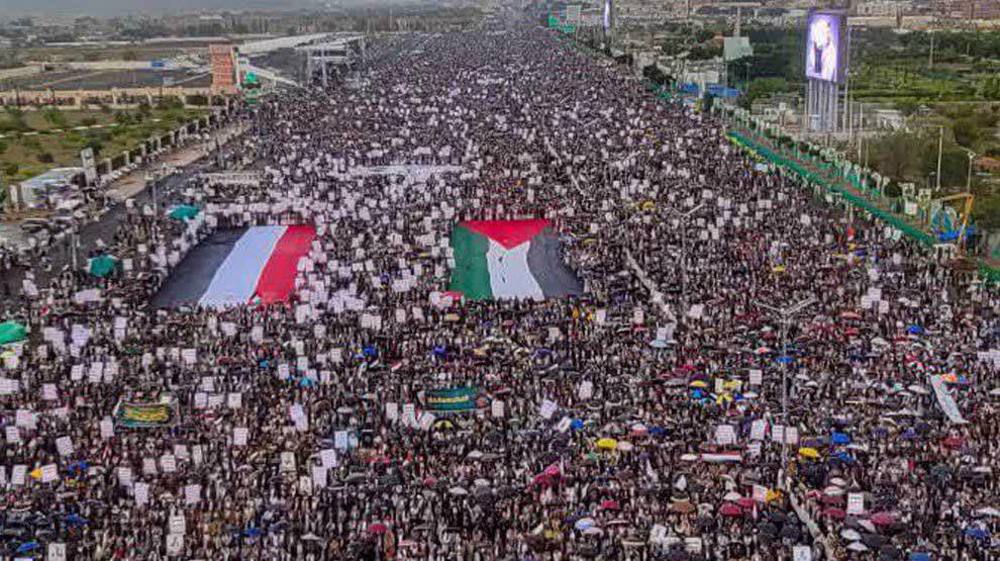Fresh fatalities after Myanmar neighbors urge junta to free detained leaders, end use of lethal force
Military junta forces have opened fire on protesters in Myanmar again leaving several of them dead, a day after the country's neighbors called on the military rulers to release former de facto leader Aung San Suu Kyi and end the use of lethal force against anti-coup protesters.
As many as six new deaths were reported on Wednesday as security forces fired on people protesting against the military coup in different cities.
Four people were shot dead during a protest in the central city of Myingyan while two others lost their lives in Mandalay, AFP quoted medics as saying. Several more were reported to have sustained injuries.
Foreign ministers from the Association of Southeast Asian Nations (ASEAN) held a video call with a representative of Myanmar's junta on Tuesday, offering to help end the crisis in the country.
"We expressed ASEAN's readiness to assist Myanmar in a positive, peaceful, and constructive manner," the ASEAN chair, Brunei, said in a statement.
Singapore's Prime Minister Lee Hsien Loong said separately that using lethal force against civilians and unarmed demonstrators was "not acceptable."
"That is disastrous not just internationally, but disastrous domestically," Lee said, describing the coup as "an enormous tragic step back."
He said imposing sanctions on the Myanmarese military would not affect it, but would rather hurt ordinary people in Myanmar.

Indonesian Foreign Minister Retno Marsud called on the Myanmarese military to "open its doors" to the ASEAN to help resolve the crisis.
"Restoring democracy back on track must be pursued," he said.
"Indonesia underlines that the will, the interest, and the voices of the people of Myanmar must be respected," Retno added.
Only four members — Indonesia, Malaysia, the Philippines, and Singapore — called for the release of Suu Kyi and other detainees.
Critics say, however, that ASEAN's engagement with Myanmar's junta gives the military regime legitimacy.
A committee of ousted Myanmarese lawmakers said members of ASEAN — Singapore, the Philippines, Indonesia, Thailand, Laos, Cambodia, Malaysia, Brunei, and Vietnam — should have no dealings with "this illegitimate military-led regime."
The committee has already declared the junta a "terrorist" group.
Meanwhile, Britain has called for a UN Security Council meet over the situation in Myanmar, AFP quoted diplomatic sources as saying.
As per London's proposal, the UN meeting would be held behind closed doors on Friday.
For about the past four weeks, the Southeast Asian country has been the scene of daily protests against the military, which grabbed power in a coup on February 1.
The army ousted the government and arrested Suu Kyi and other political leaders, claiming that voter fraud had been committed in a November 2020 election that her party won in a landslide.
In recent days, the junta has intensified a crackdown on protesters.
According to reports, more than two dozen people have been killed since the ouster of the government.
Junta seeks to replace Myanmar UN envoy
Meanwhile, the ruling junta is seeking to replace Myanmar's representative to the United Nations (UN), a day after he urged countries to use "any means necessary" to reverse the coup.
The junta accused Ambassador Kyaw Moe Tun of "betraying the country."
Moe Tun, however, wrote a letter to the UN General Assembly President Volkan Bozkir and US Secretary of State Antony Blinken, claiming that he remained his country's ambassador.
"The perpetrators of the unlawful coup against the democratic government of Myanmar have no authority to countermand the legitimate authority of the president of my country," read the letter, which was seen by Reuters.
UN spokesman Stephane Dujarric, however, said the office of Secretary-General Antonio Guterres had been notified on Tuesday that the Myanmarese regime had terminated Kyaw Moe Tun and appointed his deputy, Tin Maung Naing, as acting UN envoy.
"Let's be honest here, we're in a very unique situation we have not seen in a long time. We are trying to sort through all the legal protocol and other implications," Dujarric said.
The decision came despite pledges by Guterres to mobilize global pressure "to make sure that this coup fails."
His special envoy for Myanmar, Christine Schraner Burgener, has also warned that no country should recognize or legitimize the junta.
A nine-member UN credentials committee will now consider the rival claims to Myanmar's representation and will make a final decision.
More protests planned despite intensified crackdown
The Myanmarese military has steadily intensified its use of violence against protesters, who have nevertheless showed no sign of yielding.
Security forces fired in the air and used tear gas to break up protests in the country's two biggest cities on Wednesday.
Early in the day, protesters gathered at one site in the commercial capital, Yangon, where security forces fired warning shots to disperse them.
According to an activist in Chin State, strikes were taking place in nearly all of its townships on Wednesday.
On Tuesday, police used stun grenades and tear gas against people and detained dozens.
Among the detainees was a protest organizer who was taken away at gunpoint by security personnel in unmarked cars, said a group that tracks arrests.
At least 20 people were injured in a morning crackdown by police and soldiers in Kale Village, said a rescue worker on Tuesday. "Three... were hit by live rounds and are in a critical condition."
Medics set up mobile clinics
The intensified crackdown has prompted doctors and healthcare workers to set up mobile clinics to treat those wounded in protests.
The medics' biggest challenge is to avoid getting "shot when we help on the ground,” said a volunteer nurse in the Kachin State capital, Myitkyina. "The bullets can hit us, too; we can also die anytime," the nurse added.
"Most [victims] had head injuries because police are using batons to beat protesters," said another volunteer healthcare worker. "We are facing the most terrible situation."
So far, over 1,100 people have been detained, according to activists, among them six journalists in Yangon.
Ousted president faces more charges
The junta has charged ousted president Win Myint with two new counts, his lawyer, Khin Maung Zaw, said on Wednesday.
The new charges include a breach of the constitution that is punishable by up to three years in jail.
He is also facing a charge of violating protocols to stop the spread of the coronavirus disease.
The president was arrested along with Suu Kyi and other political leaders on the first day of the coup.
200 days of genocide: Palestinian resistance prevails over occupation
Ukraine launches drone strikes on Russia's energy sites
VIDEO | Anti-US sentiments grow in Iraq as US military presence unresolved
Jamaica officially recognizes state of Palestine
Raeisi attends inauguration of Iran-built mega multipurpose project in Sri Lanka
'Sinwar still supervising Gaza war; Israel deliberately delaying talks on captives'
VIDEO | Press TV's news headlines
UK's Rwanda deportation plan morally disgraceful











 This makes it easy to access the Press TV website
This makes it easy to access the Press TV website